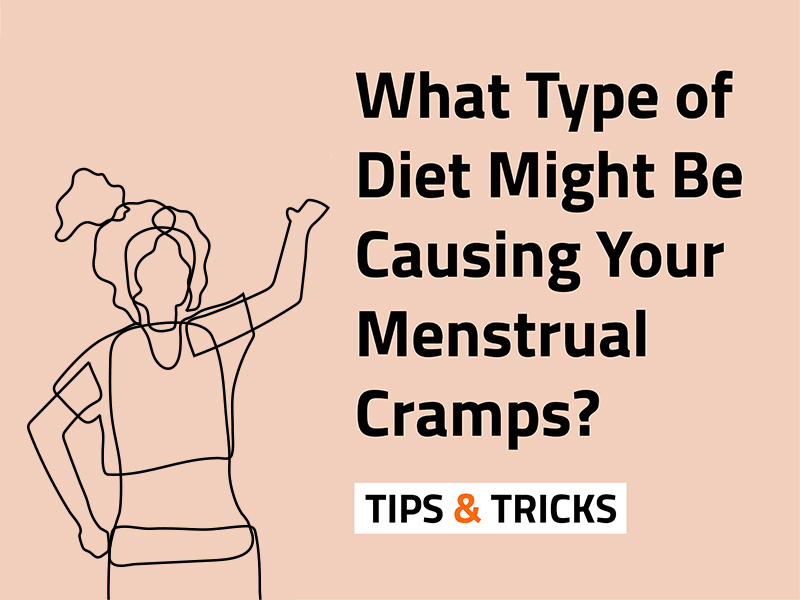Nutrition may play a key role in the prevalence and severity of dysmenorrhea. According to a study of females aged 19 to 30, the prevalence of salt in the diet, especially salty snacks, but also sweets and desserts, fruit juices, tea, coffee and foods with added fat was associated with a high risk of developing dysmenorrhea. The group that consumed these products was divided into tertiles by the amount of their intake. The young women in the second and third tertiles suffered the risk of developing dysmenorrhea that was 4 times higher than for those who were in the first tertile.
As we move through the menstrual cycle, the changing levels of hormones in our body often cause us to eat more sugary, salty, and fatty foods before our period. However, these products can cause swelling and pain during menstruation, so it’s best to avoid them.
